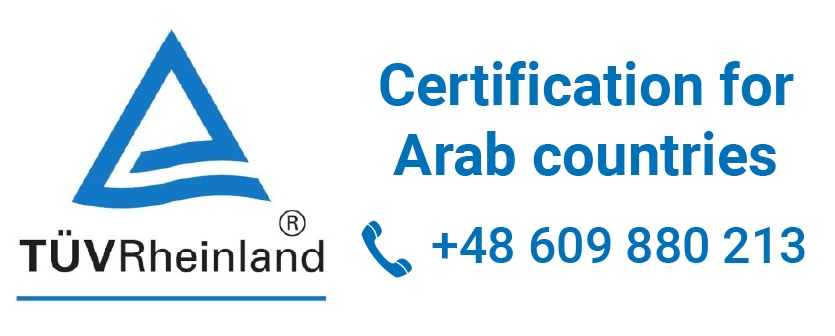What are the permitted hours for transporting oversized loads in Poland?
Transporting oversized loads, due to their exceptional size and weight, is subject to detailed regulations in Poland, including time restrictions for transportation. These regulations aim to ensure road safety and minimize disruptions in traffic flow. The rules regarding the hours of transport for oversized loads vary depending on location, type of cargo, and road conditions.
General regulations regarding transport hours:
Transporting oversized loads in Poland is governed by road traffic laws, which specify when and under what conditions such loads can be transported. Generally, oversized transports are prohibited during peak hours to minimize the risk of traffic disruptions and improve road safety.
Permissible transport hours:
Weekdays: Typically, transporting oversized loads is allowed outside of peak hours, meaning early in the morning (e.g., from 6:00 to 9:00 a.m.) and late in the evening (e.g., from 6:00 to 9:00 p.m.). The exact hours may vary depending on local regulations and traffic conditions.
Weekends and holidays: Many regulations prohibit the transport of oversized loads on weekends and on public holidays. This is to avoid additional burdens on roads during periods of increased private travel.
Special permits: In some cases, especially for transports of special significance, special permits for transport at other times may be obtained. However, this requires additional coordination with the relevant road authorities and the police.
Impact of road and weather conditions:
Road and weather conditions also affect the hours during which transporting oversized loads is permitted. In adverse weather conditions such as heavy snowfall, rain, or fog, transport may be restricted or completely prohibited. Poor visibility and slippery roads can pose additional risks for both the transported cargo and other road users.
Coordination with road authorities:
Before transporting oversized loads, obtaining appropriate permits from road authorities such as the General Directorate for National Roads and Motorways (GDDKiA) and local road administration offices is necessary. Within these permits, the exact transport hours and conditions are specified. These permits are issued based on a detailed route analysis considering factors such as traffic volume, road conditions, and any obstacles on the route.
Escort and securing:
For transporting oversized loads, a police escort or special pilot vehicles are often required. The escort is necessary to ensure road safety and the smooth conduct of the transport. Escort vehicles assist in traffic regulation, inform other drivers about the approaching convoy, and provide support in case of emergencies. Organizing the escort must be coordinated with the designated transport hours.
Examples of applications:
Transporting oversized loads is crucial in many sectors of the economy, including construction, energy, and heavy industry. An example would be the transport of bridge elements, wind turbines, or large industrial machinery. Due to the enormous size and weight of these loads, their transport must be carefully planned and conducted at the appropriate times to minimize the risk of traffic disruptions and ensure safety.
Summary:
Transporting oversized loads in Poland is subject to strict regulations regarding transport hours. Generally, such transports are prohibited during peak hours, and are only permitted early in the morning and late in the evening on weekdays, with a ban on weekends and public holidays unless special permits are obtained. Road and weather conditions may also affect the permissible transport hours. Before transport, obtaining appropriate permits from road authorities and organizing an escort by the police or other escort vehicles is necessary to ensure road safety. Transporting oversized loads is crucial for many industries and requires careful planning and compliance with applicable regulations.
- Road transport
- Transport Technology
- Logistics, Forwarding, Warehouses, Customs clearance
- Sea, rail and air transport
- TSL - Information worth attention
- Oversized loads
- Transport Europe - key transport directions
- Transport Scandinavia. Transport to Scandinavia
- Transport Balkans
- Transport Asia, transport to Asia
Oversized loads
What are the permitted hours for transporting oversized loads in Poland?

Source: https://www.poland-transport.eu

See also:

Transport from to Serbia. Transport Poland Serbia
Freight transport to and from Serbia plays a key role in European trade, connecting Poland with the Balkans and Southeastern Europe. Serbia, situated on key transport routes, plays an important role as a transit hub.

Transport to Hungary. Transport between Poland and Hungary
Transport to Hungary is an important segment of the international transport market, connecting Poland with Central and Southern Europe. What are the biggest challenges related to the organization of freight transport between Poland and Hungary?

Transport to Latvia. Transport to and from Latvia
The most popular form of transport is road transport to Latvia, which guarantees great freedom of action and a relatively quick delivery time. Thanks to the close distance between Poland and Latvia, deliveries can be made even within one day

Transport Switzerland. Transport Switzerland to and from Switzerland
Transport companies handling transport from and to Switzerland guarantee fast and safe delivery of goods, using an extensive network of roads and motorways in both directions. It is Polish carriers that effectively carry out freight transport to Switzerland

Transport Austria. Transport to and from Austria
Transport to and from Austria is an important, and sometimes even key, segment of international logistics, aimed at ensuring efficient exchange of goods between Poland and one of the key countries of Central Europe, i.e. Austria.

Transport to and from Spain. Transport Spain
Polish transport companies transport meat, dairy products, cereals, and fruit and vegetable products to Spain
Help needed ?
If you have not found the desired freight, an available truck or a suitable transport and forwarding company, or the search results are not satisfactory for you, do not hesitate to write to us to tell what you are looking for. We will send your inquiry directly to transport companies.
Write to us

 pl
pl  en
en  de
de  es
es  fr
fr  it
it  pt
pt  ru
ru  sv
sv 







